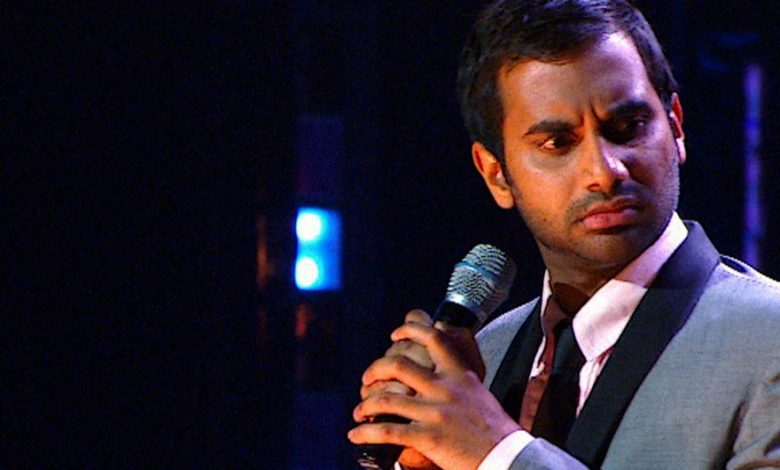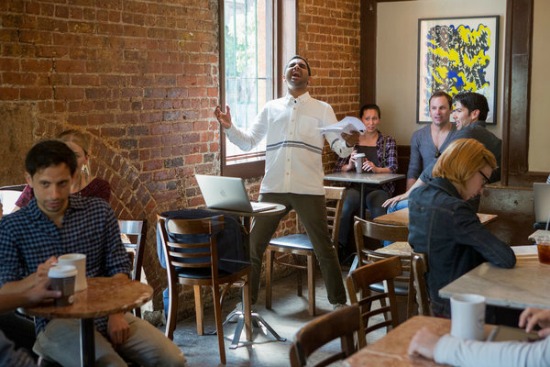Streaming ContentContributors
What Aziz Ansari Can Teach Us About Millennials

Their frustration was quickly made manifest: why don’t Millennials “get it?” That “It” could be summed up as sacrifice. So why aren’t Millennials more willing to make a sacrifice of time, effort, energy or commitment?
I have had the honor of working with Millennials as an affiliate professor since 2008. I’ve come to appreciate their strengths and weaknesses. It’s why anyone who wants to understand Millennials should watch Netflix’s “Master of None”.
Created by Aziz Ansari and Alan Yang, the comedy gives a sense of what it’s like to actually be a Millennial, even if Ansari’s Dev is 30. Here are a few critical themes explored in the show:
- Expectations Are High — In one of the season’s best episodes, “Indians on TV,” Danielle Brooks (“Orange Is the New Black”) plays Dev’s agent. He’s fighting to get Dev a role on a new sitcom that might lead to “Friends”-level money. “Do you want to see David Schwimmer’s house?” she asks. The implication is that even (arguably) the worst cast member on “Friends” has made a lot of money. Millennials are constantly being compared/contrasted against previous success, and there’s tremendous pressure to reach a high level of success quickly and early.
- Fun It Turns Out is Actually Fun — In “Parents,” there’s a genius line delivered by Dev’s father (Shoukath Ansari) – “You realize fun is a new thing, right? Fun is a luxury only your generation really has!” That gets to the heart of the Millennial challenge. We have a generation that has lived high up Maslow’s Hierarchy of Needs and has had a lot of time, space and ability to play. Turns out that fun itself is way more enjoyable than work. Think about this … 22 years of fun from K-Graduation, and then off to work in your organization. That’s the mother of all letdowns. Most Millennials are in a grieving process for what they left behind.
- Success Often Comes at the Expense of Others — One reason “Master of None” shines is how it details Dev’s unwillingness to exploit others. He’s also more than willing to call exploitation out when he sees it. In both “Indians on TV” and “Ladies and Gentlemen,” Dev won’t partake in systems that harm others. That’s likely true for most Millennials.
- Love without Partnership … or We’re All Leaning In — The Millennials are the first generation to experience full power equivalency between men and women. It’s wonderful, but it presents new challenges. Everyone is “leaning-in” and family, home, and committed relationships take a back seat to career aspirations. There are a lot of men (and women) who are willing to be the stay at home dad or mom, but it must be a conscious decision and talked about upfront. The episodes “Mornings” and “Finale” show how tough it is to be a young professional as Dev navigates his relationship and career with Rachel. The reality is that at any moment the person you love and want to build a life with may be offered the “chance of a lifetime” in another city. It’s tough to do it all alone, and yet that’s their reality.
- The American Dream is Fuzzy — What exactly are Millennials working for? Is it money, prestige, pride, safety, security? A majority of Millennials, for the better, are working from higher up Maslow’s Hierarchy. Survival is not at stake, and so self-actualization and larger dreams are in play. Dev eventually quits his job and pursues culinary school in Italy.
- YOLO — Nobody wants to die in a cubical, figuratively or literally.


Season 2 of “Master of None” was just released. I’m debating whether to watch the excellent Season 1 again before starting it, or just going into Season 2. Not sure what might be more disappointing. I hope Aziz completed this season before Trump was elected.